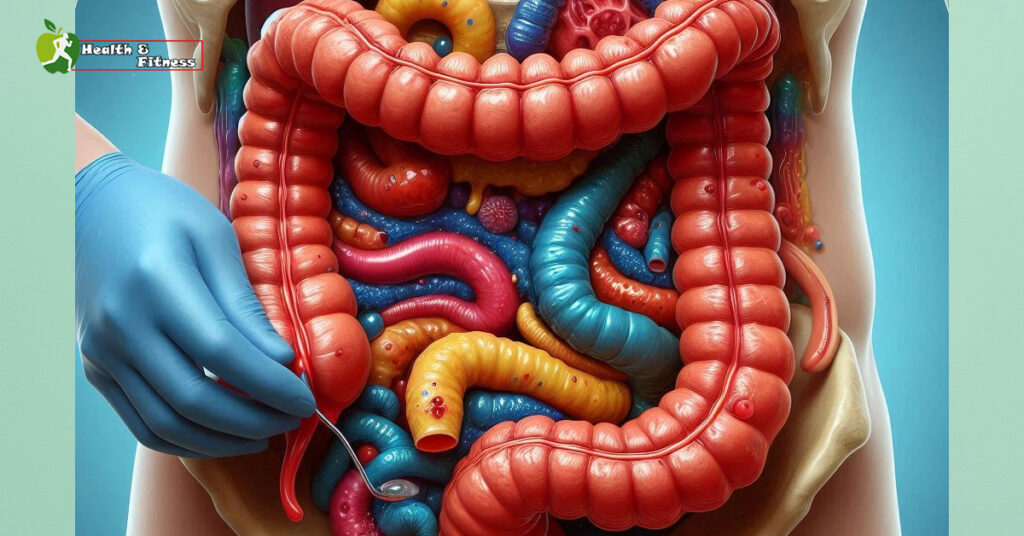Diverticulitis is a common digestive condition that affects millions of people worldwide. When left untreated, it can lead to severe complications, making accurate diagnosis and coding essential for proper treatment and billing. The diverticulitis ICD 10 code plays a crucial role in medical documentation, insurance claims, and healthcare analytics.
In this detailed guide, we’ll explore:
- What diverticulitis is and its symptoms
- The importance of the diverticulitis ICD 10 code
- How to correctly use the ICD-10 code for billing and documentation
- Treatment options and prevention strategies
- Frequently asked questions
Whether you’re a healthcare provider, medical coder, or patient, this article will provide valuable insights into diverticulitis ICD 10 and its significance in modern healthcare.
What Is Diverticulitis?
Diverticulitis occurs when small, bulging pouches (diverticula) in the digestive tract become inflamed or infected. These pouches usually form in the colon, particularly the sigmoid colon.
Common Symptoms of Diverticulitis
- Abdominal pain (usually on the lower left side)
- Fever and chills
- Nausea and vomiting
- Bloating and constipation (or sometimes diarrhea)
- Rectal bleeding (in severe cases)
Causes and Risk Factors
- Low-fiber diet (leading to increased colon pressure)
- Aging (most common in people over 40)
- Obesity and sedentary lifestyle
- Smoking and certain medications (like NSAIDs)
Early diagnosis and treatment are crucial to prevent complications like abscesses, perforations, or fistulas.
The Importance of the Diverticulitis ICD 10 Code
This code is part of the International Classification of Diseases, 10th Revision (ICD-10), a standardized system used globally for diagnosing and coding medical conditions.
Why Accurate ICD-10 Coding Matters
Ensures proper billing and insurance reimbursement
Facilitates accurate patient records
Helps in medical research and public health tracking
Reduces claim denials due to coding errors
Diverticulitis ICD 10 Codes: A Detailed Breakdown
The ICD-10 coding system categorizes diverticulitis based on its severity and complications. Below is a comprehensive table of relevant codes:
ICD-10 Codes for Diverticulitis
| ICD-10 Code | Description |
|---|---|
| K57.30 | Diverticulosis of large intestine without perforation or abscess, without bleeding |
| K57.31 | Diverticulosis of large intestine without perforation or abscess, with bleeding |
| K57.32 | Diverticulosis of large intestine with perforation and abscess, without bleeding |
| K57.33 | Diverticulosis of large intestine with perforation and abscess, with bleeding |
| K57.40 | Diverticulosis of both small and large intestine without perforation or abscess, without bleeding |
| K57.41 | Diverticulosis of both small and large intestine without perforation or abscess, with bleeding |
| K57.50 | Diverticulosis of intestine, part unspecified, without perforation or abscess, without bleeding |
| K57.51 | Diverticulosis of intestine, part unspecified, without perforation or abscess, with bleeding |
When to Use Each Code
- K57.30: Uncomplicated diverticulitis (no bleeding or abscess)
- K57.32: Diverticulitis with abscess but no bleeding
- K57.33: Severe diverticulitis with abscess and bleeding
Using the correct diverticulitis ICD 10 code ensures proper treatment planning and billing accuracy.
Diagnosis and Treatment of Diverticulitis
How Is Diverticulitis Diagnosed?
- Physical Examination (checking for abdominal tenderness)
- Blood Tests (to detect infection)
- CT Scan (most accurate for confirming diverticulitis)
- Colonoscopy (after acute phase to rule out other conditions)
Treatment Options
✅ Mild Cases:
- Antibiotics (like ciprofloxacin and metronidazole)
- Liquid diet (to rest the colon)
- Pain relievers (avoid NSAIDs if bleeding is present)
✅ Severe Cases:
- Hospitalization (for IV antibiotics and monitoring)
- Drainage of abscesses (if present)
- Surgery (for recurrent or complicated cases)
Prevention Tips
- Eat a high-fiber diet (fruits, vegetables, whole grains)
- Stay hydrated (helps digestion)
- Exercise regularly (reduces colon pressure)
- Avoid smoking and excessive alcohol
FAQs About Diverticulitis ICD 10
1. What is the most common ICD-10 code for diverticulitis?
The most frequently used code is K57.30 (diverticulosis without complications).
2. Can diverticulitis lead to other health issues?
Yes, untreated diverticulitis can cause abscesses, bowel obstructions, or peritonitis.
3. How do I know if my diverticulitis is coded correctly?
Consult a medical coder or use an ICD-10 lookup tool to verify the code matches your diagnosis.
4. Is diverticulitis the same as diverticulosis?
No, diverticulosis refers to the presence of pouches, while diverticulitis means they are inflamed or infected.
Conclusion: Why Proper ICD-10 Coding for Diverticulitis Matters
Accurate use of the diverticulitis ICD 10 code ensures efficient healthcare delivery, proper reimbursement, and better patient outcomes. Whether you’re a medical professional or a patient, understanding these codes can help streamline treatment and billing processes.


93 Comments
vwmeou
2xo4mm
fgcqej
2cyso5
https://myteana.ru/forums/index.php?autocom=gallery&req=si&img=6617
https://myteana.ru/forums/index.php?autocom=gallery&req=si&img=6776
https://vitz.ru/forums/index.php?autocom=gallery&req=si&img=5062
zmq5wz
qrm70c
https://myteana.ru/forums/index.php?autocom=gallery&req=si&img=6605
http://wish-club.ru/forums/index.php?autocom=gallery&req=si&img=5230
bvjo88
fkme3n
https://vitz.ru/forums/index.php?autocom=gallery&req=si&img=4862
http://wish-club.ru/forums/index.php?autocom=gallery&req=si&img=5289
https://vitz.ru/forums/index.php?autocom=gallery&req=si&img=5031
http://passo.su/forums/index.php?autocom=gallery&req=si&img=4305
scn8u8
https://myteana.ru/forums/index.php?autocom=gallery&req=si&img=6911
http://toyota-porte.ru/forums/index.php?autocom=gallery&req=si&img=3385
1v4v2k
http://toyota-porte.ru/forums/index.php?autocom=gallery&req=si&img=3347
http://terios2.ru/forums/index.php?autocom=gallery&req=si&img=4744
https://vitz.ru/forums/index.php?autocom=gallery&req=si&img=5014
http://terios2.ru/forums/index.php?autocom=gallery&req=si&img=4759
http://toyota-porte.ru/forums/index.php?autocom=gallery&req=si&img=3290
https://vitz.ru/forums/index.php?autocom=gallery&req=si&img=4908
http://terios2.ru/forums/index.php?autocom=gallery&req=si&img=4663
https://mazda-demio.ru/forums/index.php?autocom=gallery&req=si&img=6468
https://t.me/s/flagman_official_777/121
2i19v5
RSAC, ELLA – NBA (Не мешай) скачать песню на телефон и слушать бесплатно https://shorturl.fm/ykWAW
Palma – Полнолуние скачать бесплатно и слушать онлайн https://shorturl.fm/CMkku
Зомб – Лабиринты скачать песню в mp3 и слушать онлайн https://shorturl.fm/Zkn4E
Артем Лоик – Жить скачать mp3 и слушать онлайн https://shorturl.fm/WDfxD
Липа – Я люблю твой запах скачать песню на телефон и слушать бесплатно https://shorturl.fm/0u43s
Intelligency – Август скачать бесплатно и слушать онлайн https://shorturl.fm/PVBGw
Клава Кока & НИЛЕТТО – Краш скачать и слушать онлайн https://shorturl.fm/rFM5g
Гости из будущего – Новогодняя песня скачать и слушать mp3 https://shorturl.fm/SZzIt
https://myteana.ru/forums/index.php?autocom=gallery&req=si&img=6633
http://passo.su/forums/index.php?autocom=gallery&req=si&img=4263
https://vitz.ru/forums/index.php?autocom=gallery&req=si&img=4883
http://passo.su/forums/index.php?autocom=gallery&req=si&img=4278
https://mazda-demio.ru/forums/index.php?autocom=gallery&req=si&img=6522
http://wish-club.ru/forums/index.php?autocom=gallery&req=si&img=5466
https://mazda-demio.ru/forums/index.php?autocom=gallery&req=si&img=6416
1z4azt
Валерий Милютин – Жена скачать mp3 и слушать бесплатно https://shorturl.fm/9toph
Аккорд – Пингвины скачать mp3 и слушать бесплатно https://shorturl.fm/t4pdV
Таня Буланова – Стерпится-слюбится скачать песню на телефон и слушать бесплатно https://shorturl.fm/Al1td
Аритмия Feat. & Dj. Slava Fedyaev – Цветы Под Дверью скачать и слушать песню бесплатно https://shorturl.fm/j0tw5
Фея – Каприз скачать и слушать mp3 https://shorturl.fm/7Kiha
Настя Балог Feat. & Positiff – Додому скачать и слушать mp3 https://shorturl.fm/DHBk3
ВИА «Садо» – Во Имя Любви скачать и слушать песню https://shorturl.fm/1Lz5Z
Ханна Feat. & Миша Марвин – Финал (Vadim Adamov & Hardphol & Dfm Radio Edit) скачать песню и слушать онлайн https://shorturl.fm/gzWtk
Люверсы – Молодость скачать mp3 и слушать бесплатно https://shorturl.fm/ZFD8Z
Kambulat – Пасмурно скачать и слушать онлайн https://shorturl.fm/nP0f2
pfrve0
Thank you for your shening. I am worried that I lack creative ideas. It is your enticle that makes me full of hope. Thank you. But, I have a question, can you help me? https://www.binance.com/ro/register?ref=V3MG69RO
h1hk22
I haven’t checked in here for a while as I thought it was getting boring, but the last several posts are great quality so I guess I will add you back to my daily bloglist. You deserve it my friend 🙂
Манаби & Сатори – Невеста скачать и слушать mp3 https://shorturl.fm/2hCvs
Настя Балог Feat. & Positiff – Додому скачать и слушать mp3 https://shorturl.fm/DHBk3
Om – Минимум скачать песню бесплатно в mp3 и слушать онлайн https://shorturl.fm/G4yln
Атри Feat. & Ненаумах – Мокрый Район (Hardphol Remix) скачать mp3 и слушать онлайн https://shorturl.fm/E1FBu
Shaxo – Волк скачать бесплатно mp3 и слушать онлайн https://shorturl.fm/UFi6Y
Maru – Ночь – Боль скачать и слушать песню бесплатно https://shorturl.fm/H01k0
Noнейма – Купидон (Lavrushkin Remix) скачать песню в mp3 и слушать онлайн https://shorturl.fm/ScdB7
Южный & Яна Valevich – Лишь о тебе мечтая скачать песню и слушать бесплатно https://shorturl.fm/o9ilX
kttoy9
http://terios2.ru/forums/index.php?autocom=gallery&req=si&img=4853
https://vitz.ru/forums/index.php?autocom=gallery&req=si&img=5034
http://toyota-porte.ru/forums/index.php?autocom=gallery&req=si&img=3251
https://honda-fit.ru/forums/index.php?autocom=gallery&req=si&img=7101
https://hrv-club.ru/forums/index.php?autocom=gallery&req=si&img=6958
http://wish-club.ru/forums/index.php?autocom=gallery&req=si&img=5482
http://terios2.ru/forums/index.php?autocom=gallery&req=si&img=4544
https://mazda-demio.ru/forums/index.php?autocom=gallery&req=si&img=6560
https://vitz.ru/forums/index.php?autocom=gallery&req=si&img=5109
u7u870
https://hrv-club.ru/forums/index.php?autocom=gallery&req=si&img=6965
epvlnu
owa311
ДжаЯмми – На Рейве Цветы скачать песню и слушать онлайн
https://allmp3.pro/2805-dzhajammi-na-rejve-cvety.html
Наталья Подольская – Забери скачать песню и слушать онлайн
https://allmp3.pro/2775-natalja-podolskaja-zaberi.html
Акула пера – Мой океан скачать песню и слушать онлайн
https://allmp3.pro/2687-akula-pera-moj-okean.html
Nebezao & Rafal – Чёрная Пантера скачать песню и слушать онлайн
https://allmp3.pro/2647-nebezao-rafal-chernaja-pantera.html
Самоцветы – Я люблю этот мир скачать песню и слушать онлайн
https://allmp3.pro/2643-samocvety-ja-ljublju-jetot-mir.html
DIOR, Samo & ID – Положение скачать песню и слушать онлайн
https://allmp3.pro/2580-dior-samo-id-polozhenie.html
Клава Кока feat. Niletto – Краш скачать песню и слушать онлайн
https://allmp3.pro/2553-klava-koka-feat-niletto-krash.html
Тима Белорусских – Одуванчик (Ramirez D’N’B Remix) скачать песню и слушать онлайн
https://allmp3.pro/2559-tima-belorusskih-oduvanchik-ramirez-dnb-remix.html
Тайпан, Agunda – Набирай высоту скачать песню и слушать онлайн
https://allmp3.pro/2574-tajpan-agunda-nabiraj-vysotu.html
a9hrum